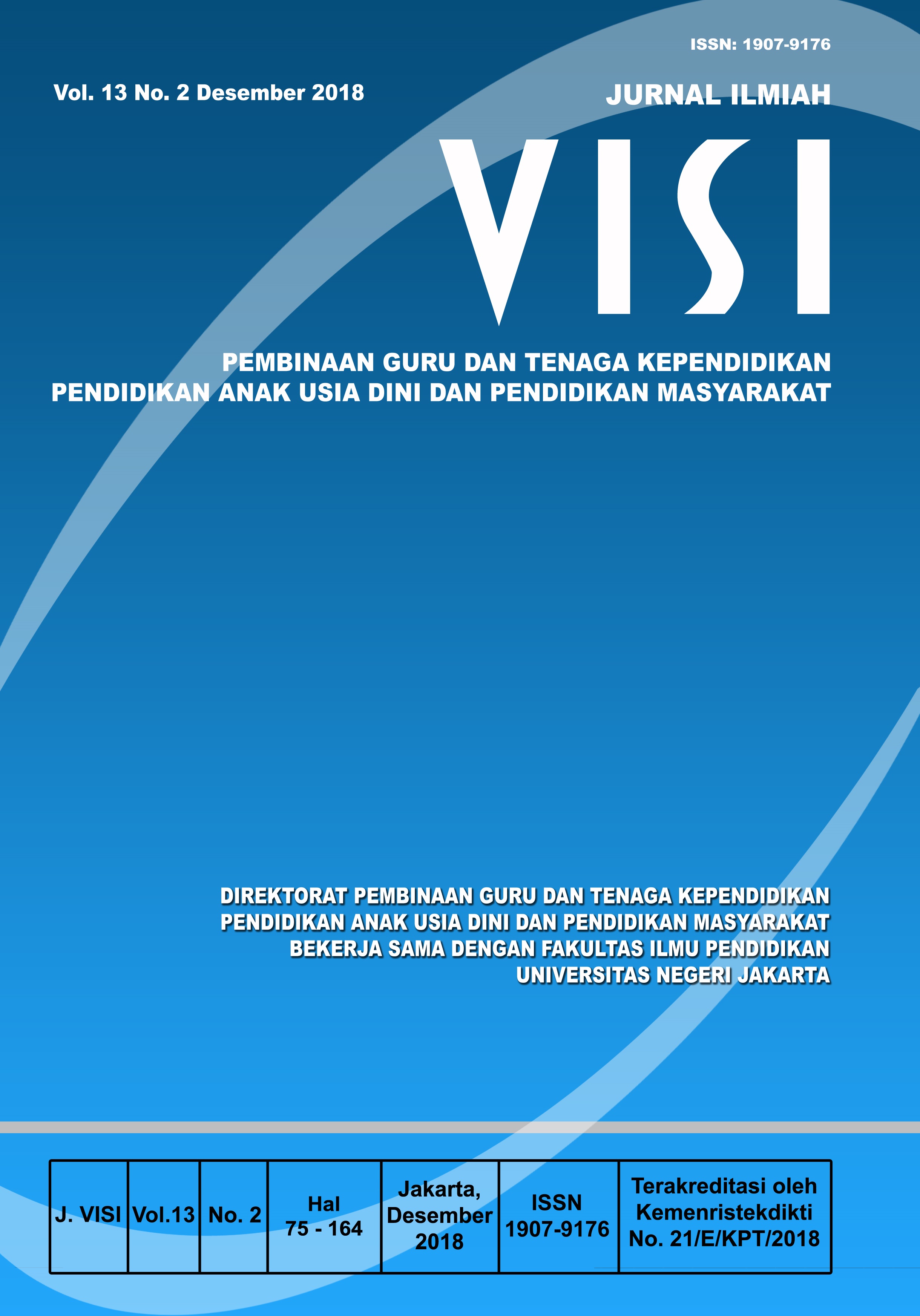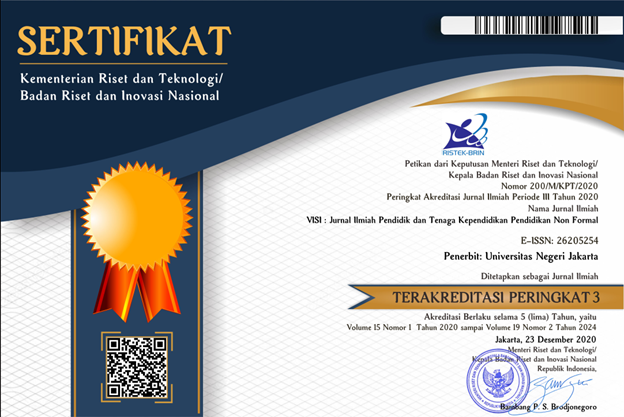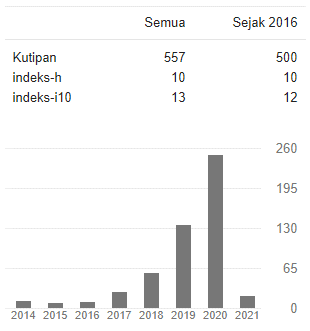PELAKSANAAN FUNGSI KEAGAMAAN KELUARGA DALAM MENANAMKAN NILAI ISLAMI PADA ANAK
DOI:
https://doi.org/10.21009/JIV.1302.1Keywords:
religious functions, Islamic values, familyAbstract
This study aims to explain the implementation of the family’s religious functions in instilling the Islamic values to the children. The study was conducted in February - June 2018. The research method employed was the descriptive qualitative method. The data were collected using in-depth interviews and observations. The collected data were analyzed using the qualitative data analysis methods. The research subjects were 30 families whose parents had children aged 7-12 years and residing in the South Tangerang area. The research subjects were chosen using the purposive sampling procedures. The findings showed that 67.29% of the families had carried out their religious functions in instilling the Islamic values including the aspects of reading the stories of the prophets which done by the 60% of families, telling the family of the Messenger of Allah and the story of the Prophet’s companions which done by the 67% of families, teaching the names of the angels and their duties, and introducing the names of the scriptures which done by the 53% of the families, and the rest 32.71% of the family had not embedded the Islamic values in those aspects yet. Instilling the Islamic values as parts of the implementation of the family’s religious function was carried out in various ways according to the values which were implemented. Thus, the suggestion given is that parents as the implementers of the family’s religious functions have to learn continuously to improve their knowledge as well as to provide the sufficient time to instill the Islamic values in those aspects to their children.
References
Al Qur’anul Karim. Assobar Qur’an. Jakarta Timur: Pustaka Al-Mubin.
Andayani & Koentjoro. (2004). Psikologi keluarga: Peran ayah menuju coparenting. Yogyakarta: Citra Media.
Badan Pusat Statistik. (2017). Jumlah tenaga kerja perempuan di Indonesia. Diakses dari http://independen.id/read/data/429/jumlah-tenagakerja-perempuan-di-indonesia/ pada tanggal 18 September 2017.
Djaelani, S. (2013). Peran pendidikan agama islam dalam keluarga dan masyarakat. Jurnal Ilmiah Widya, 1(2), 100-105. https://e-journal.jurwidyakop3.com/index.php/jurnal-ilmiah/article/view/140
Djamas, Nurhayati, Rohita, Fitria, & Nila. (2017). Perilaku islami remaja. Prosiding Epistemologi Islam dalam Perspektif Teori Ilmu Pengetahuan Modern. PII-MKU: November.
Fachrudin. (2011). Peranan pendidikan agama dalam keluarga terhadap pembentukan kepribadian anak-anak. Jurnal Pendidikan Agama Islam-Ta’lim, 9(1), 1-16. http://jurnal.upi.edu/taklim/view/834/peranan-pendidikan-agamadalam--keluarga-terhadap-pembentukankepribadian-anak-anak.html
Musrin, M. (2004). Sistem nilai dan pandangan hidup serta relasinya dengan ilmu pengetahuan. Jakarta: Wardah.
Peraturan Pemerintah Republik Indonesia Nomor 21 Tahun 1994 tentang Penyelenggaraan Pembangunan Keluarga Sejahtera.
Sunartiningsih. (2015). Menghidupkan 8 fungsi keluarga menuju keluarga sejahtera. Diakses dari http://yogya.bkkbn.go.id/_layouts/mobile/dispform.aspx?List=8c526a76-8b88-44fe-8f81-085df5b7dc7&View=69dc083c-a8aa-496a-9eb7-b54836a53e40&ID=289
Takariawan, C. (2016). 8 fungsi keluarga dan peran ibu. Diakses dari https://www.kompasiana.com/pakcah/8-fungsi-keluarga-dan-peranibu_585b42e3148773230c238763
Toha, C., dkk. (2004). Metodologi pengajaran agama. Yogyakarta: Pustaka Pelajar.
Rozalinda. (2014). Ekonomi islam,teori dan aplikasinya pada aktivitas ekonomi. Jakarta: Raja Grafindo Persada.
‘Ulwan, A.N. (2012). Pendidikan anak dalam Islam. Solo: Penerbit Insan Kamil.
Downloads
Published
How to Cite
Issue
Section
License
Authors who publish with this Journal agree to the following terms:
- Author retain copyright and grant the journal right of first publication with the work simultaneously licensed under a creative commons attribution licensethat allow others to share the work within an acknowledgement of the work’s authorship and initial publication of this journal.
- Authors are able to enter into separate, additional contractual arrangementfor the non-exclusive distribution of the journal’s published version of the work (e.g. acknowledgement of its initial publication in this journal).
- Authors are permitted and encouraged to post their work online(e.g. in institutional repositories or on their websites) prior to and during the submission process, as it can lead to productive exchanges, as well as earlier and greater citation of published works.
- Users/public use of this website will be licensed to CC BY-NC-SA Creative Commons Attribution-NonCommercial-ShareAlike 4.0 International License









